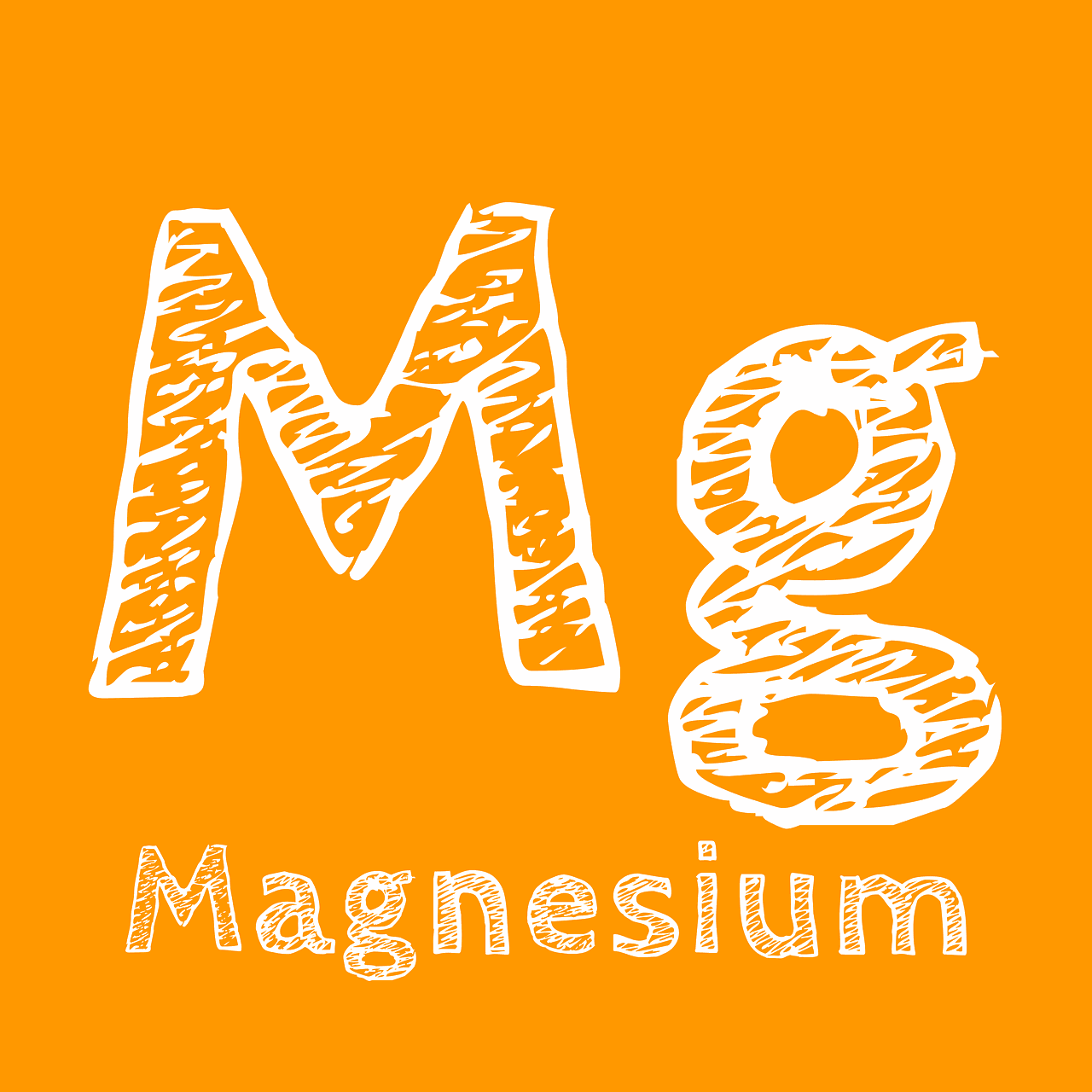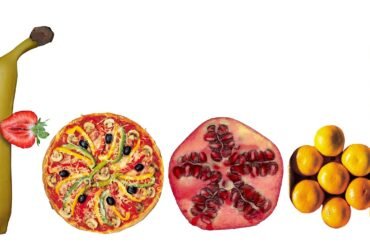Micronutrient Marvels: The Essential Vitamins and Minerals Your Body Needs

Table of Contents
Vitamin A: The Vision Booster
Vitamin A is an essential nutrient that plays a crucial role in maintaining good vision. It is a fat-soluble vitamin that is naturally found in various foods and is also available in the form of supplements. This micronutrient marvel is responsible for keeping your eyes healthy and functioning optimally.
One of the key functions of vitamin A is to support the normal functioning of the retina, a layer at the back of the eye that is responsible for capturing light and converting it into signals that are sent to the brain, allowing us to see. It aids in the production of a pigment called rhodopsin, which is essential for night vision. Without adequate vitamin A, your ability to see in dim light or at night may be compromised.
Deficiency of vitamin A can lead to a condition called night blindness, where individuals struggle to see in low-light conditions. In severe cases, it can also cause a condition called xerophthalmia, which is characterized by dryness of the eyes, corneal ulcers, and even blindness.
Aside from its vision-boosting benefits, vitamin A also supports the immune system, helps maintain healthy skin and mucous membranes, and promotes normal growth and development. It is particularly important for pregnant women, as it aids in the proper development of the fetus’s eyes, bones, and organs.
So, how can you ensure you’re getting enough vitamin A? Include foods rich in this nutrient in your diet, such as carrots, sweet potatoes, spinach, kale, mangoes, and liver. These foods contain high levels of beta-carotene, a compound that the body can convert into vitamin A. It is worth noting that vitamin A from animal sources, such as liver, is readily absorbed by the body compared to plant-based sources.
If you’re struggling to meet your daily vitamin A requirements through diet alone, supplements can be a convenient option. However, it’s important to consult with a healthcare professional before starting any new supplements, as excessive intake of vitamin A can be toxic.
- Include foods rich in vitamin A, such as carrots, sweet potatoes, spinach, kale, mangoes, and liver.
- Opt for animal sources of vitamin A for better absorption.
- Consult with a healthcare professional before starting any new supplements.
By ensuring an adequate intake of vitamin A, you can support your vision and overall health, keeping your eyesight sharp and clear.
Vitamin C: The Immune Defender
Vitamin C, also known as ascorbic acid, is a powerful antioxidant that plays a crucial role in supporting the immune system. It is an essential micronutrient that your body needs to function optimally. Here are some key points about vitamin C:
- Boosts Immunity: Vitamin C enhances the production of white blood cells, which are vital for fighting off infections and viruses. It strengthens the immune system, helping it to function effectively.
- Antioxidant Properties: As an antioxidant, vitamin C protects cells from damage caused by harmful free radicals. It helps neutralize these free radicals and reduces oxidative stress, which can lead to chronic diseases.
- Collagen Production: Vitamin C is essential for the synthesis of collagen, a protein that plays a crucial role in the formation of skin, tendons, ligaments, and blood vessels. It promotes wound healing and supports healthy skin.
- Aids Iron Absorption: Consuming vitamin C-rich foods alongside iron-rich foods can enhance iron absorption. This is particularly beneficial for individuals at risk of iron deficiency, such as vegetarians and vegans.
- Supports Brain Health: Research suggests that vitamin C may have a protective effect on cognitive function and reduce the risk of neurodegenerative diseases like Alzheimer’s. It helps maintain the health of brain cells and supports neurotransmitter production.
- Food Sources: Citrus fruits, strawberries, kiwi, bell peppers, broccoli, and leafy greens are excellent sources of vitamin C. Including these foods in your diet can help ensure an adequate intake of this vital nutrient.
It’s important to note that while vitamin C is beneficial for overall health, it should be consumed in moderation. Excessive intake can lead to digestive issues like diarrhea. The recommended daily intake of vitamin C for adults is 75-90 milligrams.
Ensuring an adequate intake of vitamin C through a balanced diet or supplements can help bolster your immune system, support collagen production, and promote overall well-being. Remember to consult with a healthcare professional before starting any new supplementation regimen.
Iron: The Energy Enhancer
Iron is an essential mineral that plays a crucial role in maintaining overall health and well-being. It is often referred to as the “energy enhancer” due to its role in carrying oxygen to all parts of the body. In fact, iron is a key component of hemoglobin, a protein found in red blood cells that binds with oxygen and transports it throughout the body.
One of the main functions of iron is to support the production of red blood cells. Without adequate iron levels, the body may struggle to produce enough healthy red blood cells, leading to a condition called iron deficiency anemia. This can result in fatigue, weakness, and difficulty concentrating, as the body is not receiving an adequate supply of oxygen.
Iron is also involved in energy metabolism. It helps convert food into energy by facilitating the production of adenosine triphosphate (ATP), the main energy currency of the body. This is particularly important for individuals who lead active lifestyles or engage in regular exercise, as iron helps optimize energy production and muscle function.
In addition to its role in energy production, iron is essential for a healthy immune system. It supports the production of white blood cells, which are responsible for fighting off infections and diseases. Iron deficiency can weaken the immune system, making individuals more susceptible to illnesses and infections.
Including iron-rich foods in your diet is the best way to ensure adequate intake of this vital mineral. Good sources of iron include lean meats, poultry, fish, legumes, nuts, seeds, and fortified cereals. It is important to note that there are two types of dietary iron: heme and non-heme iron. Heme iron is found in animal-based foods and is more easily absorbed by the body, while non-heme iron is found in plant-based foods and is less readily absorbed. To enhance the absorption of non-heme iron, it is recommended to consume it with a source of vitamin C, such as citrus fruits or bell peppers.
While iron is essential for overall health, it is important to maintain the right balance. Too little iron can lead to anemia and fatigue, while excessive iron levels can be harmful and may contribute to oxidative stress. It is always best to consult with a healthcare professional or registered dietitian to determine your individual iron needs and ensure you are meeting them through a balanced diet.
- Iron is an essential mineral for carrying oxygen throughout the body.
- It supports the production of red blood cells and helps convert food into energy.
- Adequate iron intake is crucial for a healthy immune system.
- Include iron-rich foods in your diet, such as lean meats, legumes, and fortified cereals.
- Balance is key – consult with a healthcare professional to determine your individual iron needs.
Calcium: The Bone Builder
When it comes to building strong bones, calcium takes the center stage. This essential mineral plays a crucial role in maintaining bone health and preventing conditions such as osteoporosis. Calcium is not only responsible for the formation of bones but also contributes to proper muscle function, nerve transmission, and blood clotting.
Here are some key facts about calcium:
- Recommended Daily Intake (RDI): The RDI for calcium varies depending on age and gender. For adults aged 19-50 years, it is approximately 1000 milligrams per day.
- Sources: Dairy products like milk, cheese, and yogurt are excellent sources of calcium. Additionally, leafy green vegetables such as broccoli and kale, fortified plant-based milk, and certain fish like salmon and sardines are also good sources.
- Absorption: Calcium absorption depends on various factors, including vitamin D levels, age, and overall health. Vitamin D plays a vital role in calcium absorption, so it is essential to ensure an adequate intake of both nutrients.
- Calcium Deficiency: Insufficient calcium intake over time can lead to a deficiency, which may weaken the bones and increase the risk of fractures. Symptoms of calcium deficiency can include muscle cramps, brittle nails, and a higher susceptibility to osteoporosis.
- Calcium Supplements: If it is challenging to meet the calcium needs through diet alone, supplements can be considered. However, it is important to consult with a healthcare professional before starting any supplementation.
To maximize calcium absorption, it is advisable to spread calcium-rich foods throughout the day and pair them with sources of vitamin D. Additionally, regular weight-bearing exercises such as walking or weightlifting can help strengthen bones and improve calcium utilization.
Remember, calcium is not only important during childhood and adolescence but also throughout adulthood to maintain optimal bone health. By incorporating calcium-rich foods into your diet and adopting a healthy lifestyle, you can ensure that your bones stay strong and healthy for years to come.
B Vitamins: The Stress Fighters
Stress has become an inevitable part of our modern lives, and it takes a toll on our physical and mental well-being. Thankfully, Mother Nature has provided us with a group of vitamins known as B vitamins that play a crucial role in combating stress and promoting overall health. Let’s delve into the world of B vitamins and explore how they can be your stress-fighting superheroes.
1. Vitamin B1 (Thiamine): This essential vitamin helps convert carbohydrates into energy, ensuring your brain and muscles function optimally. It also supports the production of neurotransmitters that regulate your mood and reduce stress levels. Good sources of vitamin B1 include whole grains, legumes, and nuts.
2. Vitamin B2 (Riboflavin): Vitamin B2 is vital for energy production and plays a key role in maintaining healthy skin, eyes, and nervous system. Adequate levels of this vitamin can help combat fatigue and promote a sense of well-being. You can find vitamin B2 in dairy products, leafy greens, and fortified cereals.
3. Vitamin B3 (Niacin): Niacin is involved in over 200 enzymatic reactions in the body and is essential for energy production. It helps regulate stress hormones and supports a healthy nervous system. Foods rich in niacin include poultry, fish, whole grains, and legumes.
4. Vitamin B5 (Pantothenic Acid): This vitamin is often referred to as the “anti-stress” vitamin. It supports the adrenal glands, which produce stress hormones, and aids in the production of neurotransmitters. Good sources of vitamin B5 include meat, eggs, whole grains, and avocados.
5. Vitamin B6 (Pyridoxine): Vitamin B6 is essential for the synthesis of neurotransmitters like serotonin and dopamine, which are involved in mood regulation. Adequate levels of B6 can help alleviate anxiety and promote a sense of calmness. Foods rich in vitamin B6 include poultry, fish, bananas, and potatoes.
6. Vitamin B9 (Folate): Folate is crucial for the production of red blood cells and DNA. It also aids in the synthesis of neurotransmitters, thus playing a key role in mood regulation and stress management. Dark leafy greens, legumes, and citrus fruits are excellent sources of folate.
7. Vitamin B12 (Cobalamin): Vitamin B12 is essential for maintaining healthy nerve cells and DNA synthesis. It helps combat fatigue and supports brain function, which can be affected by chronic stress. Animal products like meat, fish, and dairy are the primary sources of vitamin B12.
Incorporating a variety of B vitamin-rich foods into your diet can help combat stress and promote overall well-being. However, if you struggle to consume enough B vitamins through diet alone, consider talking to your healthcare provider about appropriate supplementation.
Remember, when it comes to managing stress, a holistic approach that includes a balanced diet, regular exercise, and healthy lifestyle choices is crucial. The power of B vitamins should not be underestimated in supporting your body’s stress-fighting abilities.


























